It’s a crisp, sunlit morning in the heart of Neelum Valley. The river hums below the wooden bridge, and the mist still lingers between the pines like a whispered secret. Sharda looks peaceful at this hour — quiet, dignified, almost timeless. But beneath this serenity lies a history that stretches back over five thousand years.
Before leaving, I take a slow walk to the ancient Sharda Peeth Temple, one of the oldest centers of learning in the subcontinent. Once a grand university of philosophy and theology, its library drew scholars from across Asia. The ruins now rest in silence, embraced by nature, yet the stones seem to hum with the wisdom of centuries.
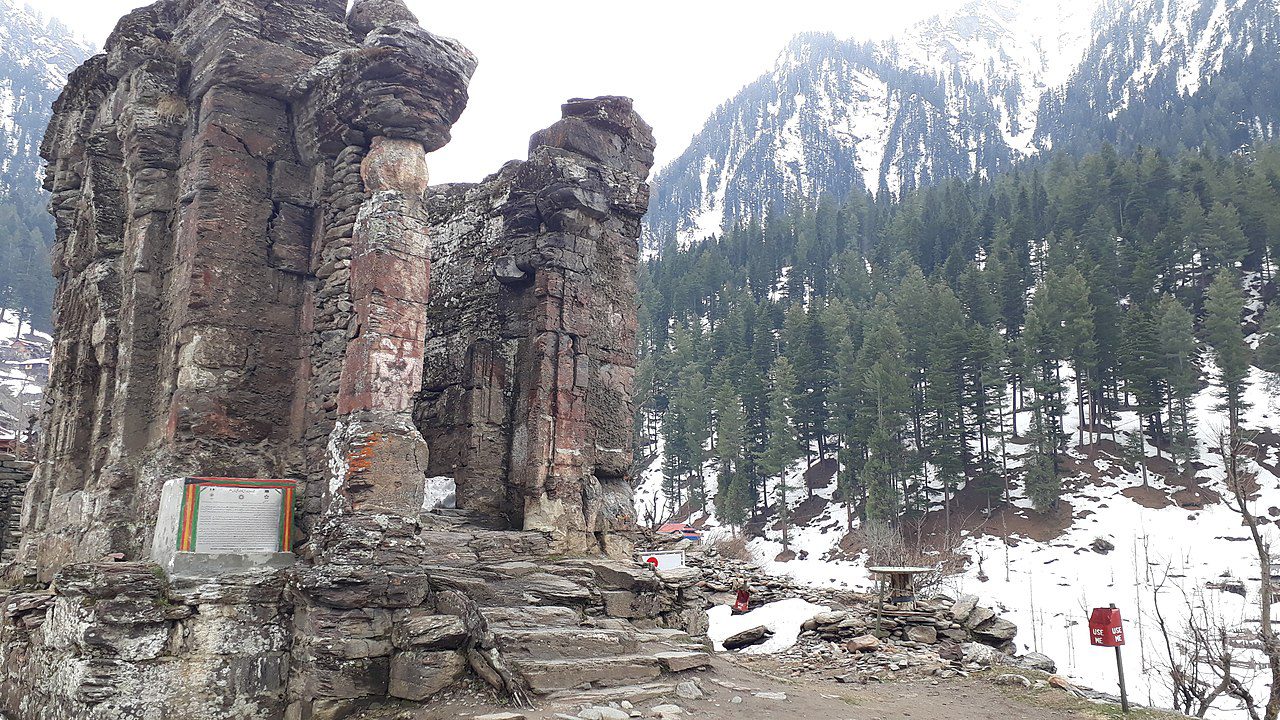
For the Kashmiri Pandits, Sharda Peeth is among their three holiest sites, a symbol of their ancient civilization. Standing before the ruins, I can almost imagine the scholars, the sound of Sanskrit verses carried by the mountain breeze. It’s a humbling reminder that Kashmir has always been more than just a land of beauty — it’s a cradle of knowledge, faith, and resilience.
Bismillah… In the name of Allah.
With that prayer, I start my day — and my journey from Sharda toward Noori Top, one of the most challenging and stunning mountain passes of Azad Kashmir.
Breakfast in the Valley
Before taking the road, I make a quick stop at a small restaurant near the wooden bridge. Sharda is one of the larger settlements in this region — a lively hub for travelers, with jeeps parked by the riverside and men in woolen shawls sipping tea by the stoves.
Breakfast is simple: paratha, omelet, and hot chai — the perfect fuel for what lies ahead. My companions for the day, a group of four friends I met during my previous trek to Chitta Katha Lake, join me soon after. They are traveling by jeep and have kindly agreed to carry most of my luggage. That’s a huge relief because the path ahead — the climb to Noori Top — is said to be rough, steep, and unpredictable.
I’ll lead the way on my motorcycle, carrying only my camera and essentials. The plan is to cross Noori Top in about four hours and reach the other side before evening.
It’s already 10 AM — later than we intended. But that’s how travel works in the mountains. You can plan all you want, but the valleys have their own clock.
The Road to Noori Top
Leaving Sharda, we ride along the Neelum River. The road winds gently at first, with views so beautiful it’s hard to focus on driving. But soon, the asphalt begins to fade, replaced by gravel and dust.
Noori Top connects Neelum Valley in Azad Kashmir to the Babusar Top road on the KPK side — a 47-kilometer stretch that climbs through rivers, cliffs, and glaciers before descending into Jalkhad.
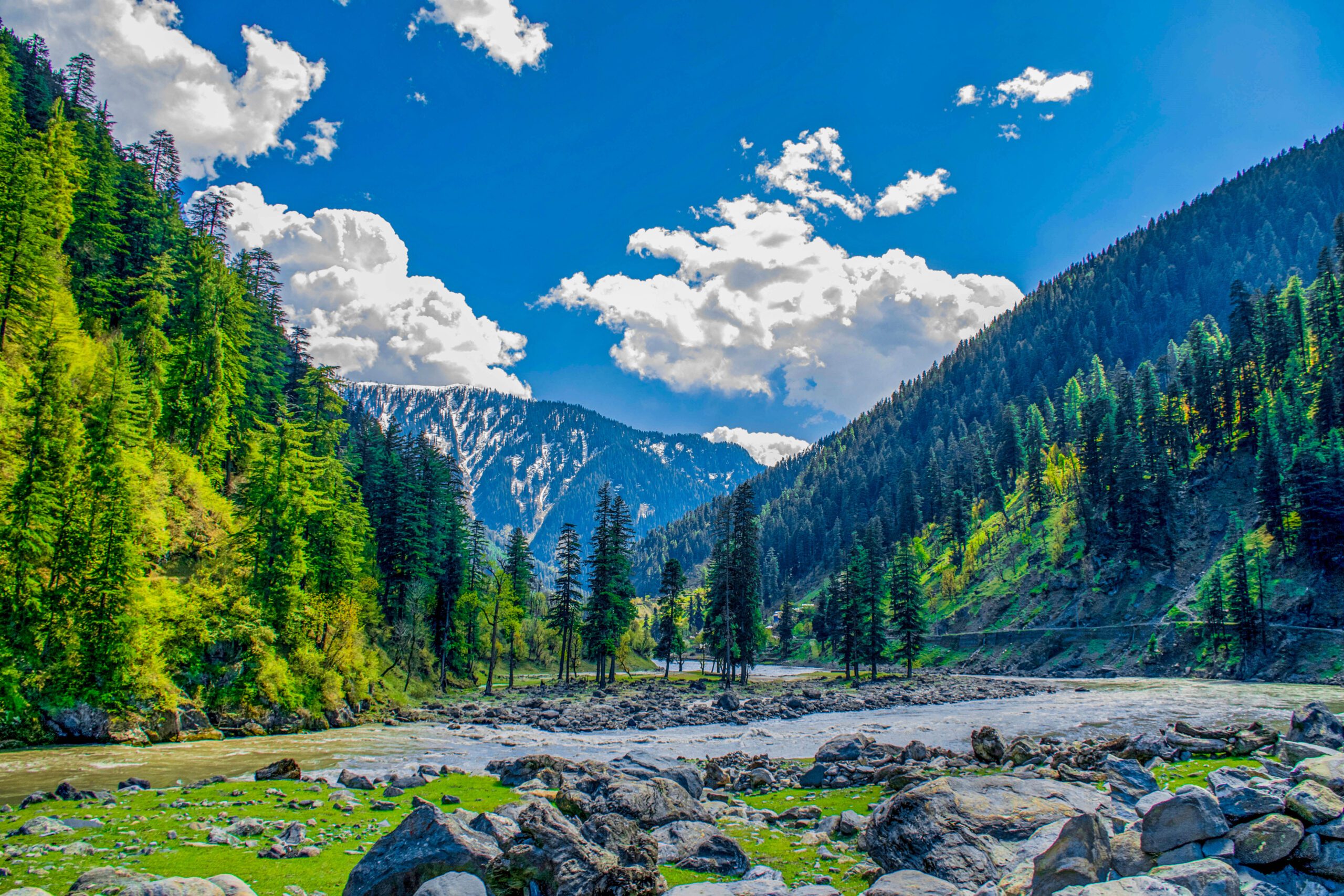
Many travelers had warned me, “Don’t go alone. The streams are deep, the rocks unforgiving.”
But the past few days have been dry. No rain means lower water levels. I whisper a prayer, “Ya Allah, make the journey easy and safe for us.”
We stop briefly at a small checkpoint to register our details before heading into the wilderness. The officer at the post smiles. “You’re going on a motorcycle? May Allah be with you.”
The Asphalt Ends
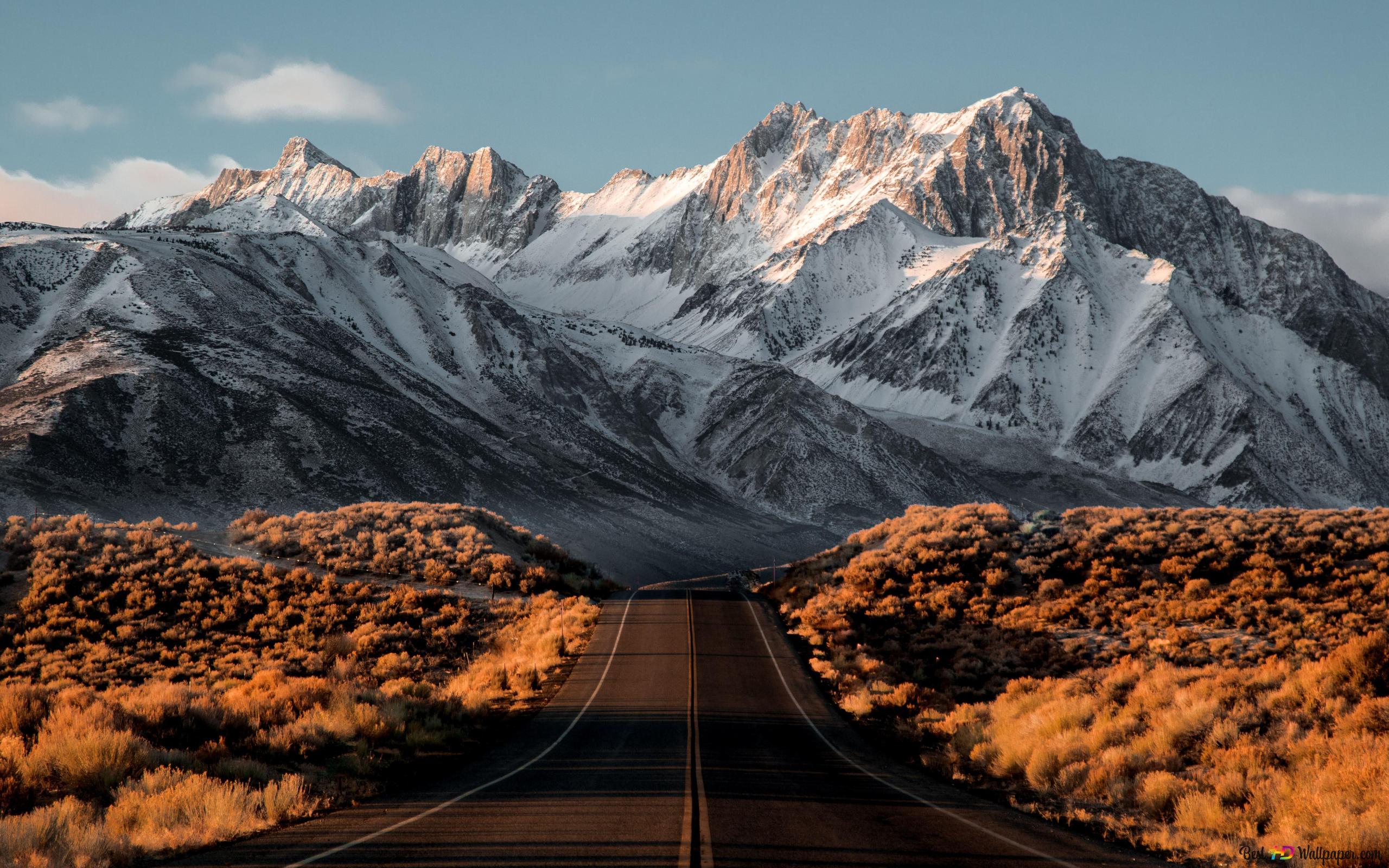
For the first few kilometers, the road surprises me — smooth asphalt cutting through towering mountains. The Neelum River glows turquoise beside us, and the bridge we cross gleams faintly yellow under the sunlight.
“This part used to be off-road,” one of the jeep drivers says. “The government recently paved it.”
I smile — short-lived comfort. Within minutes, the asphalt disappears. Dust rises in clouds, the surface turns to rock and sand, and the motorcycle begins to dance beneath me.
“Here we go again,” I mutter.
Construction work is ongoing. Bulldozers crawl over the cliffs like yellow ants. Someday, this might be an easy road, but not today. Today, it’s a battlefield of loose stones and steep inclines.
At one point, I feel the bike lurch — the rear stand rattling dangerously. I stop just in time. My luggage strap has come loose, and the bag is barely hanging on.
“Oh no,” I sigh, checking the damage. “This could’ve fallen off completely.”
My companions stop behind me. One of them laughs, “If something falls again, we’ll pick it up for you.”
“Deal,” I reply. “Just keep an eye out. I’ve already lost one selfie stick somewhere in Bulgaria — don’t want to lose another in Kashmir.”
We laugh it off and continue. But deep down, I know this is only the beginning.
Climbing the Heights
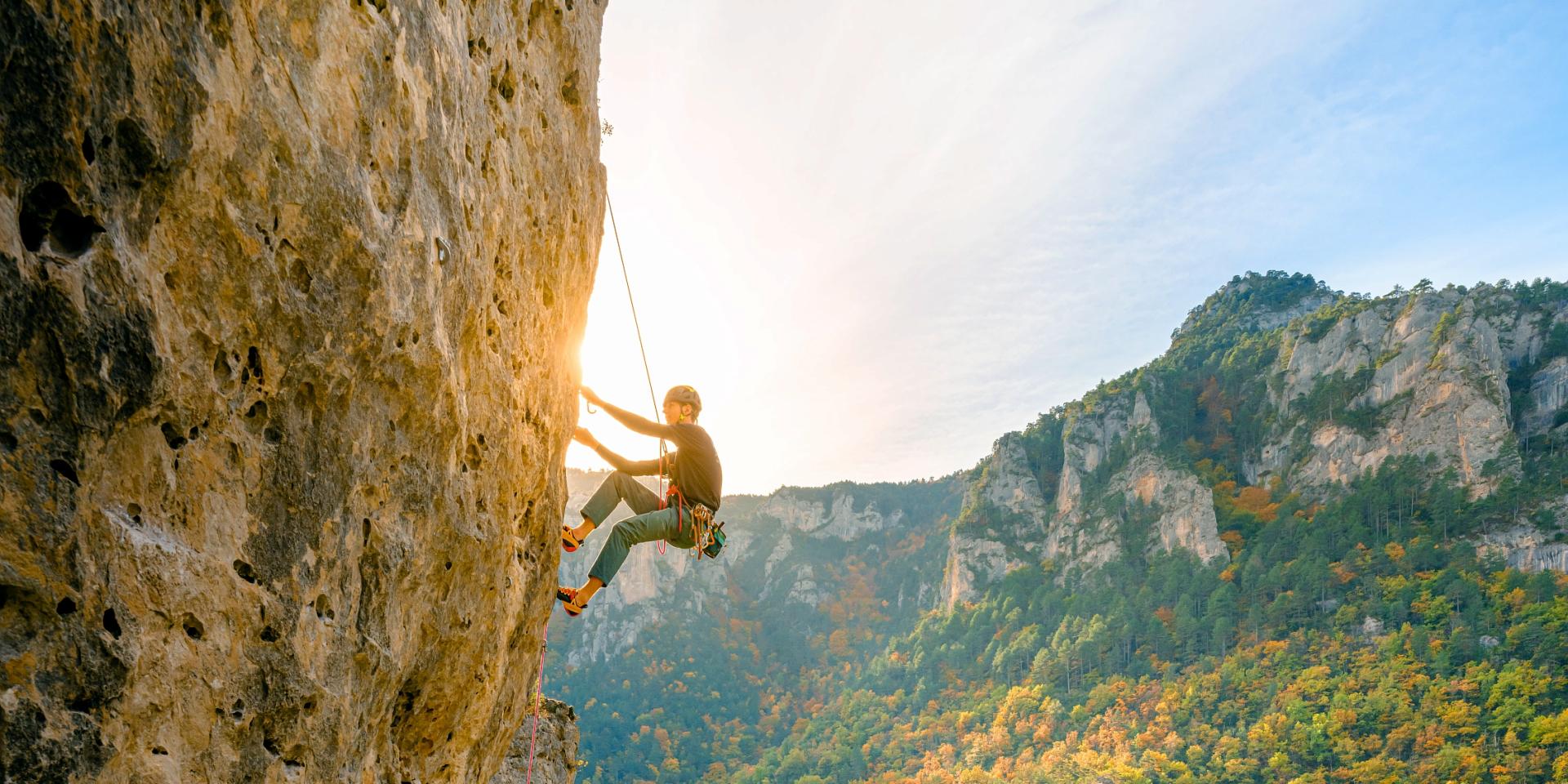
The road begins to climb sharply now. Below, the Neelum River looks like a silver thread. Villages shrink into tiny dots. The air grows thin, and I can feel the altitude — a faint ringing in my ears.
The motorcycle’s engine groans. I pat the tank gently. “Come on, Rangeeli. You’ve got this.”
Sweat drips down my forehead even though the air is cool. The road throws everything at us — loose gravel, big rocks, and sudden drops that make your heart skip a beat.
At one particularly steep turn, the inevitable happens — the motorcycle slips and falls. I go down with it, dust flying all around.
“Ya Allah,” I exhale, catching my breath.
My friends rush to help. The bike’s fine, just a few scratches. “We’re not going back without completing this,” I tell them, half to reassure myself.
They cheer me on. “Let’s do this, brother!”
The Edge of the World
We push upward, one bend at a time. The higher we go, the quieter it gets. The sound of engines fades, replaced by the whisper of wind and the distant echo of water streams below.
Every now and then, I glance back. The view is staggering — valleys stacked upon valleys, sunlight dancing on the river far below. The houses we passed earlier now look like matchboxes scattered in green.
At one high ridge, I see smoke rising from a few huts. “People live here?” I ask, surprised.
“Yes,” says a local shepherd who waves at us as we pass. “We stay here with our cattle during summer.”
He offers me tea and fried snacks. I almost stop, tempted by the warmth of his invitation, but my companions wave from ahead. “No breaks!”
With a smile and a wave, I move on.
The Notorious Stream
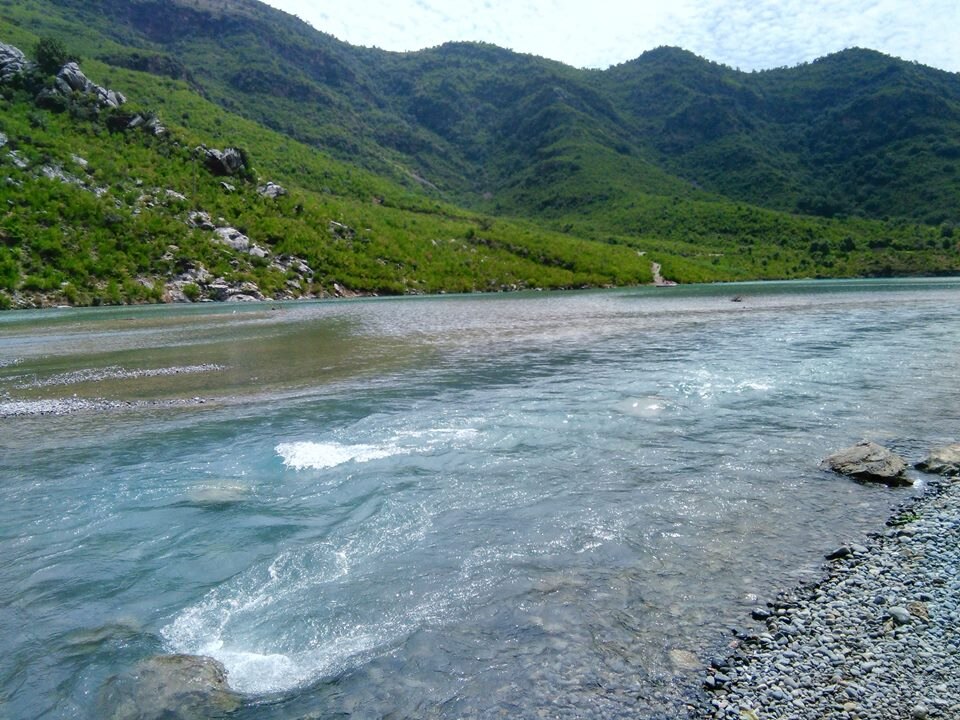
As we descend slightly, we see it — the notorious water stream everyone had warned us about. It’s wide, fast, and cold, roaring like an angry beast cutting across the path.
I stop and stare. “That’s it, isn’t it?”
“Yes,” one of the jeep drivers says grimly. “That’s the one.”
We decide to cross together. I remove my laptop bag and camera gear just in case. The others park on higher ground, ready to help if needed.
Bismillah…
I ride in slowly. The water hits the tires hard. The motorcycle wobbles, then steadies. For a moment, it feels doable. Then, halfway through, the current deepens.
“Please pick it up!” I shout. “Quickly!”
The bike begins to tilt. Water splashes into my boots, icy cold. My friends jump in, pushing from behind, shouting directions over the roar.
“Push! Left side! Keep moving!”
The motorcycle jerks forward, sputters — and then, finally, we make it.
I exhale, drenched but relieved. My friends are laughing. “Brother, this was the toughest part yet!”
I laugh too. “You’re right. I’ll never forget this stream.”
On the Top of Noori
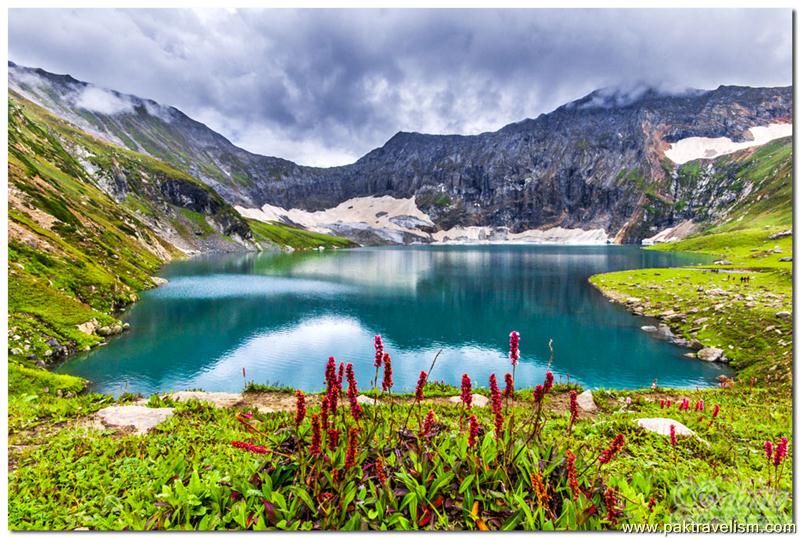
The landscape begins to change again. We’re surrounded by snow patches and rocky slopes. Shepherd tents dot the terrain — a reminder of life even in such harsh places.
At last, after endless switchbacks and zigzags, my navigation shows what I’ve been waiting for — the highest point.
Noori Top.
We made it.
The air is thin, crisp, and freezing. My hands tremble as I remove my helmet. Below us, glaciers glint in the sunlight. The entire valley lies hidden under layers of mist.
“This,” I whisper, “is what freedom feels like.”
It’s hard to describe the sense of achievement. Every bruise, every fall, every moment of doubt feels worth it.
But we can’t stay long. The wind is biting cold, and the descent ahead is still unknown. Another group of bikers arrives — young men from Southern Punjab. Their motorcycles couldn’t handle the climb, so most of them walked the last few kilometers. We share a few laughs, take photos together, and wish each other safe travels.
I pull on my gloves. “Let’s move before it gets colder.”
Downward into KPK
We begin the descent with Bismillah again. The path is rough, but the view is breathtaking. Snowfields gleam on both sides, and distant rivers carve blue veins through the green valleys below.
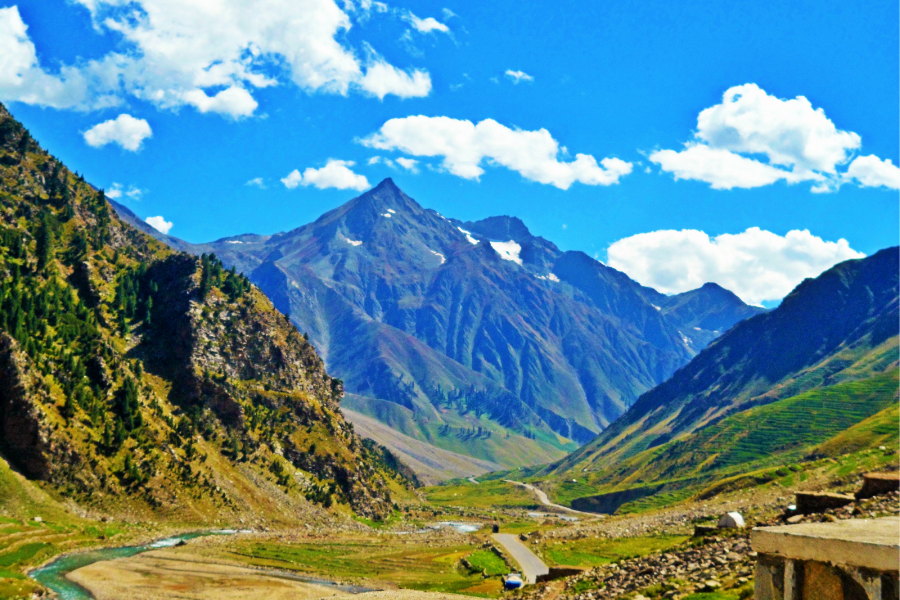
After a while, I realize we’ve crossed into Khyber Pakhtunkhwa — the unseen line between two provinces, two worlds.
The road smoothens slightly, and I finally relax my shoulders. Then, suddenly, a meadow appears — an endless green plain split by a clear river, cattle grazing lazily under the sun. It’s so beautiful that I have to stop.
My feet are soaked from the water crossings, my boots squelching with every step. I take them off and sit by the river, letting the sun dry my socks while the cold water hums nearby.
After a long silence, I whisper, “Alhamdulillah.”
The hardships fade away in that moment. All that remains is peace.
The Last Few Kilometers
From here, it’s about 11 kilometers to Jalkhad. Locals tell me the road gets better — though by now, I take such claims with a pinch of salt.
Still, the track does improve. Soon, I see waterfalls cascading from the cliffs — twin streams of white water crashing into the valley below. A strong wind rushes through, carrying the scent of wet earth and moss.
Then, after hours of struggle and silence, I spot it — the highway. A strip of smooth asphalt cutting through the mountains. Civilization.
For the first time all day, I see jeeps, a few other bikers, and even a roadside stall. My friends in the jeep park near a grassy patch to cook their meal. I join them briefly, share tea, and we talk about the day.
They’re heading back to Islamabad. I, however, have other plans.
Onward to Naraan
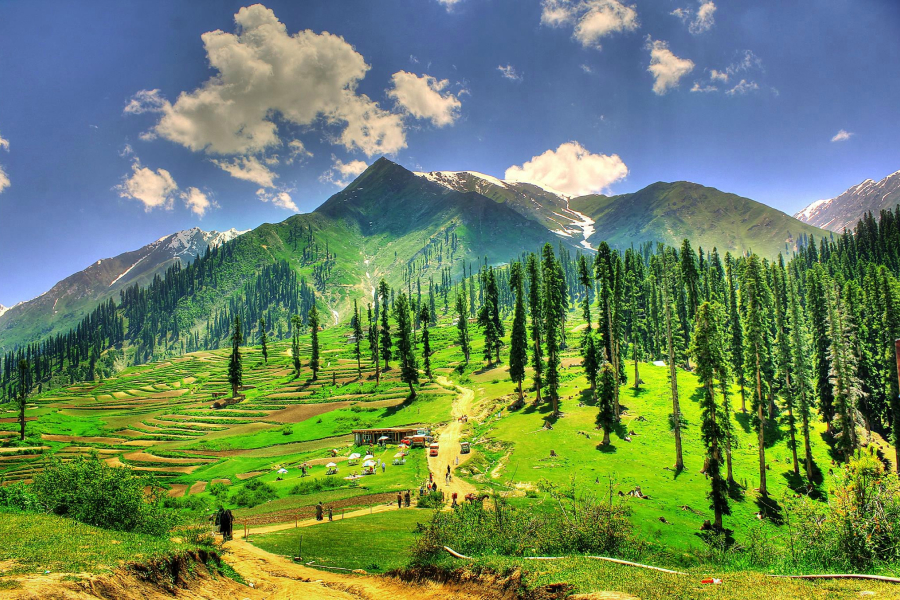
As the sun begins to set, I bid farewell to my companions. “Thank you,” I tell them, “for everything. This wouldn’t have been possible without you.”
They laugh and wave. “Allah Hafiz, brother. See you on another adventure.”
From Jalkhad, Naraan is just 40 kilometers away — about an hour’s ride on a smooth road. After what I’ve endured today, that feels like luxury.
The muezzin’s Azaan echoes faintly through the valley as I ride into the twilight. The golden light fades into soft blue, and the cold returns.
By the time I reach Naraan, it’s dark. I’m exhausted — far more than I look. My clothes are damp, my back aches, and I can barely keep my eyes open.
A friend helps me find a room. “Don’t worry about payment tonight,” he says kindly. “We’ll settle it in the morning.”
I thank him, drop my bags, and sink onto the bed. Outside, the wind howls softly through the valley.
Reflections from the Road
As I lie there, I think back on the day — from the ancient ruins of Sharda Peeth to the roaring waters of Noori Top, from fear to faith, from exhaustion to gratitude.
Traveling in Kashmir isn’t just about the views; it’s about the people, the prayers whispered at every bend, and the courage that grows quietly within you.
Every road here tests you — physically, mentally, spiritually — but rewards you with memories that no photograph can ever capture.
Tomorrow will bring another sunrise, another journey. But tonight, I sleep with a full heart, whispering one last Alhamdulillah before closing my eyes.








